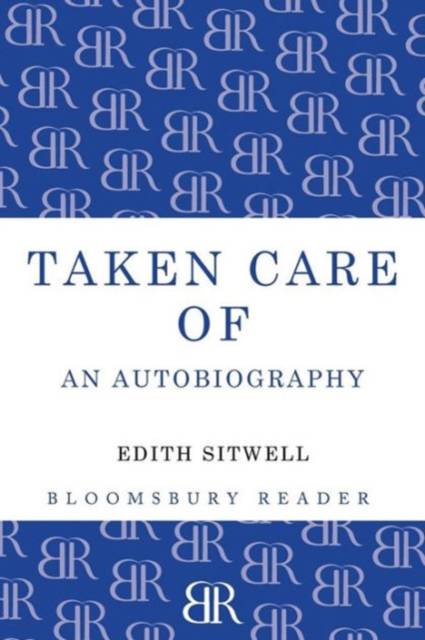
- Afhalen na 1 uur in een winkel met voorraad
- Gratis thuislevering in België vanaf € 30
- Ruim aanbod met 7 miljoen producten
- Afhalen na 1 uur in een winkel met voorraad
- Gratis thuislevering in België vanaf € 30
- Ruim aanbod met 7 miljoen producten
Zoeken
Omschrijving
Dame Edith Sitwell died while this autobiography was in the course of printing. One of the last acts of her life was to approve the 'specimen page' from the printer. She did not live to correct her proofs and what, if any, changes she might have made is a matter for conjecture. The book, as she wrote it, must now stand as the last prose work to come from a great writer of the last century and a wise, witty and compassionate woman. 'I trust', she wrote, 'that I have hurt nobody.'
Dame Edith was much more than one of the leading English poets of her lifetime. Long, long before the age of television introduced the synthetic, professional 'personality', she was a personality without the inverted commas, and thus became a familiar figure to a public far wider than the readership of her poetry, criticism and essays. With her remarkable brothers, she stood for certain important and lasting I qualities in the artistic life of the nation-for the war against philistinism, for a progressive outlook that in its day seemed, and was, rebellious, and yet for a spirit of continuity and tradition in art that has become apparent to the layman only in the perspective of time. This sense of tradition and respect for the past was by no means incompatible with a degree of eccentricity-which gives Taken Care Of its remarkable and unique flavour.
Dame Edith was much more than one of the leading English poets of her lifetime. Long, long before the age of television introduced the synthetic, professional 'personality', she was a personality without the inverted commas, and thus became a familiar figure to a public far wider than the readership of her poetry, criticism and essays. With her remarkable brothers, she stood for certain important and lasting I qualities in the artistic life of the nation-for the war against philistinism, for a progressive outlook that in its day seemed, and was, rebellious, and yet for a spirit of continuity and tradition in art that has become apparent to the layman only in the perspective of time. This sense of tradition and respect for the past was by no means incompatible with a degree of eccentricity-which gives Taken Care Of its remarkable and unique flavour.
Specificaties
Betrokkenen
- Auteur(s):
- Uitgeverij:
Inhoud
- Aantal bladzijden:
- 228
- Taal:
- Engels
Eigenschappen
- Productcode (EAN):
- 9781448200429
- Verschijningsdatum:
- 20/12/2012
- Uitvoering:
- Paperback
- Formaat:
- Trade paperback (VS)
- Afmetingen:
- 156 mm x 234 mm
- Gewicht:
- 326 g

Alleen bij Standaard Boekhandel
+ 43 punten op je klantenkaart van Standaard Boekhandel
Beoordelingen
We publiceren alleen reviews die voldoen aan de voorwaarden voor reviews. Bekijk onze voorwaarden voor reviews.








